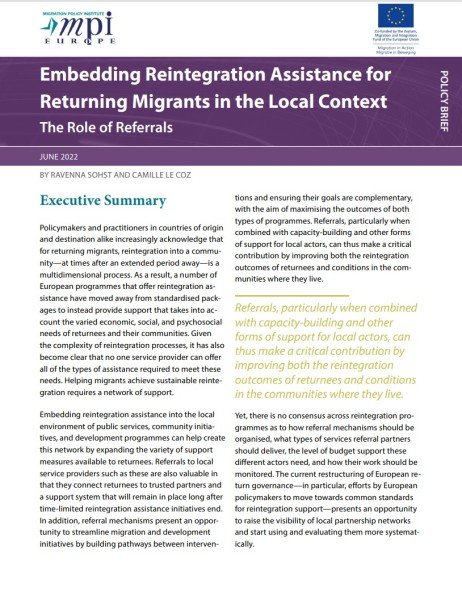Embedding Reintegration Assistance for Returning Migrants in the Local Context: The Role of Referrals

The objectives of European reintegration programs for migrants returning to their countries of origin have expanded in recent years. Reintegration assistance, instead of being delivered as standardized support packages, is increasingly being designed to take into account the multiple dimensions of returnees’ reintegration—economic, social, and psychosocial—and the context of the communities in which they settle. As these programs become more complex, it has also become clear that no one service provider can offer all of the various services necessary to meet returnees’ diverse needs and profiles.
One way to broaden the range of supports available to returning migrants and embed reintegration assistance into the local context is to refer returnees to local actors, including government agencies and civil-society organizations. Such referrals, particularly when combined with capacity-building assistance for local partners, can help connect returnees with tailored, long-term support. Yet, there is no consensus across reintegration programs as to how referral mechanisms should be organized, what types of services referral partners should deliver, the level of budget support different actors need, and how their work should be monitored.
This policy brief explores the role of referrals in reintegration programming, offering a typology of approaches taken across programs to date. It also discusses common challenges, emerging good practices, and promising next steps to improve the local embeddedness of reintegration assistance.
